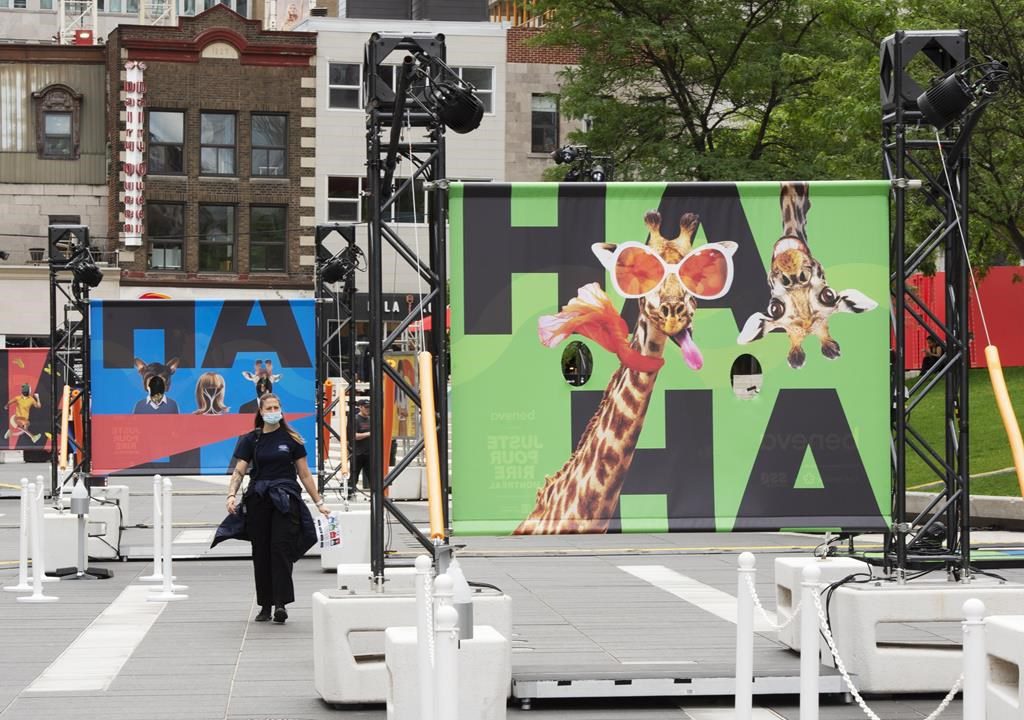The cancellation of the Just for Laughs comedy festivals in Montreal and Toronto this year shows how the industry is struggling with rising costs and competing for limited government grants.
As a result, some events are thinking about making cuts. In Montreal, organizers are worried about whether the city can maintain its lively summer atmosphere and wide range of free entertainment.
“It’s not easy to provide free (events), but it’s important for Montreal and its reputation — that’s its brand image, you might say,” said Suzanne Rousseau, director of Festival International Nuits d’Afrique, a display of African, Caribbean and Latin American music.
“We need to think about how to keep this alive and not lose it,” she begged. “It’s urgent.”
From the moment the first beat drops at the weekly Piknic Électronik shows that start in May, a continuous flow of summer events sweep over Montreal, from the thrilling Formula 1 Grand Prix in June to the Osheaga music festival in August. Many consecutive smaller events keep the streets bustling with activities, many of them free.
The increase in festivals across Canada has led to greater need for funding. And it’s the free events that are particularly at risk because they depend on sponsorship revenue that has not kept pace with skyrocketing production and labor costs since the COVID-19 pandemic, says Martin Roy, president of the Regroupement des événements majeurs internationaux, an association of major event organizers in Quebec.
Meanwhile, the two main sources of federal financial aid for festivals have mostly stayed the same, he said in a phone interview. While Quebec increased funding for its festival aid program in 2022 — to $85 million over three years — the base budgets for the federal programs have remained at a combined $50.2 million for over 15 years, Roy explained. Canada started adding an extra $15 million per year to the programs in 2019, but those supplements are set to expire in the next two years.
The number of events that qualify for the federal programs has only grown, Roy said, meaning many long-time funding recipients have seen their allocations decrease over time.
Roy once celebrated the increasing number of festivals in Canada as a sign of industry and cultural strength, but he now acknowledges that abundance is adding to the problem. “At some point, if the resources are not going up the number of festivals at some point has to stop going up,” he said.
Rousseau and Alain Mongeau, director of Montreal-based electronic music and digital art festival MUTEK, both say they’d like to see funding programs prioritize events with significant cultural value.
In an interview, Mongeau described post-pandemic inflation as a “mini-shock” to the Montreal festival industry. “We’re going to have to make some radical choices,” he said.
“We’re going to have to say, well, maybe we’ll significantly cut our programming. I think all the festivals are doing that.”
Roy cautioned that reducing funding could make Canadian festivals less appealing to tourists, thus affecting the economy more broadly. For instance, Eric Hamel, CEO of the Greater Montreal hotel association, partly attributes the increase in local hotel occupancy during the summer months to the area's festivals and events.
However, Hamel stated that if these events do not take place, businesspeople may shorten their visits and tourists would have fewer incentives to stay in the city. Businesspeople would come for conferences, "carry out their tasks, and then promptly return home," he mentioned on Wednesday.
Roy contends that festivals offer a significant return on investment for governments due to the economic impact they generate, stating, "I believe it's a beneficial arrangement."
Former CEO of the Just For Laughs festival, Andy Nulman, disclosed in a recent interview that the festival brought in millions of dollars to Montreal annually. Nulman suspects that management challenges are the cause of the financial crisis leading to the cancellation of the 2024 editions and the company seeking protection from creditors. However, the company expressed its hope to resume the festivals in 2025.
Nonetheless, Nulman emphasized that the circumstances faced by the city's comedy festival should serve as a cautionary tale for the entire event industry.
"This serves as a warning signal, alerting everyone to get their affairs in order because they should not assume they are immune to potential impact," stated Nulman, who also sits on the board of Montreal's tourism office. "It can have a more detrimental effect than it has had on this festival."
The office of Canadian Heritage Minister Pascale St-Onge highlighted the hundreds of millions of dollars that the federal government has allocated to emergency aid programs for festivals and major events since 2019, along with additional investments in tourism projects.
"We will closely monitor the industry's challenges," assured her office in relation to festival industry troubles.




